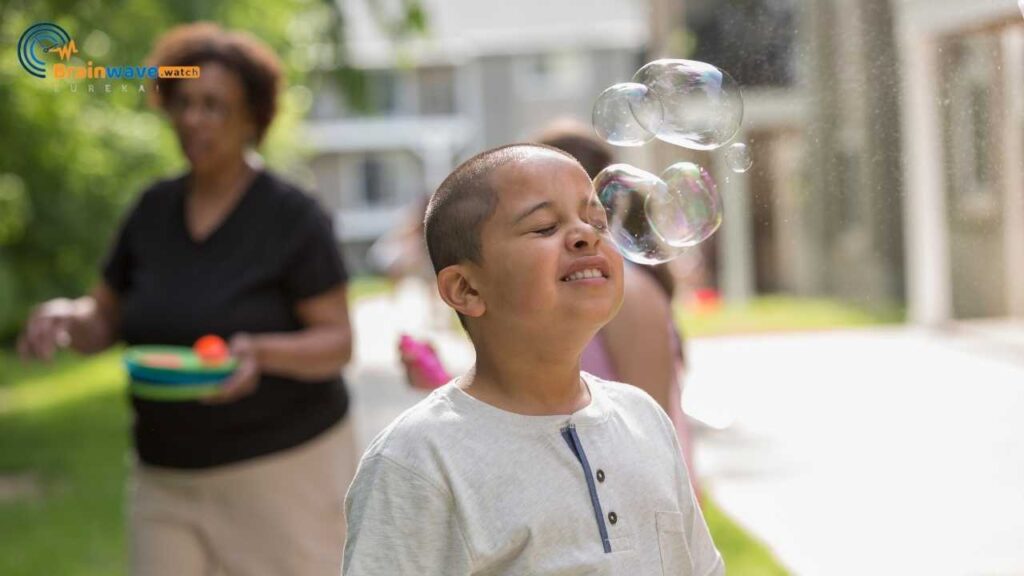What is occupational therapy?
Occupational therapy is a form of therapy that helps people to develop and recover the skills needed for everyday life. It can be used to help people with a wide range of conditions, including physical, mental, and social disabilities.
Occupational therapy can help special needs children in many ways. It can help them to develop the skills needed for everyday activities, such as dressing, eating, and brushing their teeth. It can also help them to improve their mobility and coordination. In addition, occupational therapy can help special needs children to socialize and interact with others.
There are many different types of occupational therapy activities that can help special needs children. Some of these activities include arts and crafts, music therapy, and physical activity. Occupational therapists can also provide guidance and support to parents and caregivers.
The benefits of occupational therapy for special needs children are numerous. It can help them to develop the skills needed for everyday life, improve their mobility and coordination, and socialize with others. Occupational therapy is an important part of helping special needs children to reach their full potential.
Read also: How Can the Therapist Help Autism Children?
Benefits of occupational therapy for special needs children?
There are many benefits of occupational therapy for special needs children. Occupational therapy can help special needs children develop the skills they need to be successful in school and in their everyday lives. We will discuss the five benefits of occupational therapy for special needs children.
1. Improve social skills
One of the benefits of occupational therapy is that it can help improve social skills. Many children with special needs have difficulty interacting with other children. They may not know how to initiate or maintain a conversation. They may also have trouble understanding social cues. Occupational therapy can help these children learn how to interact with others.
2. Increase academic success
Another benefit of occupational therapy is that it can help increase academic success. Many children with special needs have difficulty in school. They may struggle with reading, writing, and math. They may also have trouble paying attention and staying on task. Occupational therapy can help these children succeed in school by teaching them strategies to help them succeed academically.
3. Enhance fine motor skills
Another benefit of occupational therapy is that it can help enhance fine motor skills. Many children with special needs have difficulty with small movements. This can make it hard for them to do things like write or tie their shoes. Occupational therapy can help these children learn how to make small movements and improve their fine motor skills.
4. Develop daily living skills
Another benefit of occupational therapy is that it can help develop daily living skills. Many children with special needs have difficulty with activities of daily living such as dressing, bathing, and eating. Occupational therapy can help these children learn how to complete these activities independently.
5. Improve cognitive skills
Another benefit of occupational therapy is that it can help improve cognitive skills. Many children with special needs have difficulty with thinking and processing information. Occupational therapy can help these children by teaching them strategies to improve their cognitive skills.
Occupational therapy can provide many benefits for special needs children. It can help improve social skills, increase academic success, enhance fine motor skills, develop daily living skills, and improve cognitive skills.
Read also: How to Help Your Child with Autism Thrive
How occupational therapy help special needs children
Occupational therapy can help special needs children in many ways. It can help them improve their fine motor skills, gross motor skills, sensory processing, and social skills. It can also help them develop independent living skills and cope with the challenges of their condition.
Fine motor skills are the ability to use small muscles to perform tasks such as writing, drawing, and buttoning a shirt. Occupational therapists can help special needs children improve their fine motor skills through activities such as using small manipulative toys, arts and crafts, and working on puzzle pieces.
Gross motor skills are the ability to use large muscles to perform tasks such as walking, running, and climbing stairs. Occupational therapists can help special needs children improve their gross motor skills through activities such as playing catch, riding a bike, and using playground equipment.
Sensory processing is the ability to interpret environmental stimuli such as touch, sound, and smell. Occupational therapists can help special needs children improve their sensory processing through activities such as massage, aromatherapy, and listening to calming music.
Social skills are the ability to interact with others in a positive way. Occupational therapists can help special needs children improve their social skills through activities such as group games, role-playing exercises, and social stories.
Independent living skills are the ability to perform tasks independently such as dressing oneself, preparing meals, and doing laundry. Occupational therapists can help special needs children develop independent living skills through activities such as cooking classes, budgeting classes, and self-care workshops.
Read also: Effects of Music Therapy for Special Needs Teens with Autism
What are some occupational therapy activities for special needs children?
There are many different types of occupational therapy activities that can be beneficial for special needs children. These activities can help with fine motor skills, gross motor skills, sensory processing, and social skills. Some specific examples of occupational therapy activities include:
- Tutoring or playing educational games to help with learning and academic skills
- Using puzzles, manipulative toys, and other hands-on activities to improve fine motor skills
- Playing catch, hopscotch, or other gross motor games to develop gross motor skills
- Sensory integration activities such as using soft fabrics or Play-Doh to help with sensory processing
- Role-playing and other social games to encourage social skills development
Each child is unique and will respond differently to different types of activities. An occupational therapist will work with a child to assess their needs and find the activity or activities that will be the most beneficial for that individual child.







